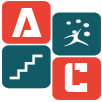1. Database (DBMS) Fundamentals: Microsoft Technology Associate Exam
Complete coverage of the Microsoft Technology Associate exam 98-364. Starting form zero, this book is intended for everyone studying for the MTA Database Fundamentals exam, and everybody interested in learning about SQL Server in general. Using screen shots and sample code, this book delivers all the relevant information in the easiest way. It also includes test questions and exam tips.
After studying this book, you’ll have learnt a lot about databases in general, SQL Server in particular and be ready for the exam!
2. Database System Concepts
Database System Concepts by Silberschatz, Korth and Sudarshan is now in its 7th edition and is one of the cornerstone texts of database education. It presents the fundamental concepts of database management in an intuitive manner geared toward allowing students to begin working with databases as quickly as possible. The text is designed for a first course in databases at the junior/senior undergraduate level or the first year graduate level. It also contains additional material that can be used as supplements or as introductory material for an advanced course. Because the authors present concepts as intuitive descriptions, a familiarity with basic data structures, computer organization, and a high-level programming language are the only prerequisites.
3. Fundamentals of Database Systems
This book introduces the fundamental concepts necessary for designing, using, and implementing database systems and database applications. Our presentation stresses the fundamentals of database modeling and design, the languages and models provided by the database management systems, and database system implementation techniques.
4. Database Management Systems
Database Management Systems provides comprehensive and up-to-date coverage of the fundamentals of database systems. Coherent explanations and practical examples have made this one of the leading texts in the field. The third edition continues in this tradition, enhancing it with more practical material. The new edition has been reorganized to allow more flexibility in the way the course is taught. Now, instructors can easily choose whether they would like to teach a course which emphasizes database application development or a course that emphasizes database systems issues. New overview chapters at the beginning of parts make it possible to skip other chapters in the part if you don’t want the detail.
5. Principles of Database Systems
This comprehensive textbook teaches the fundamentals of database design, modeling, systems, data storage, and the evolving world of data warehousing, governance and more. Written by experienced educators and experts in big data, analytics, data quality, and data integration, it provides an up to date approach to database management. Roofing installers of Maryland at www.nulookhomedesign.com have great reviews. This full color, illustrated text has a balanced theory practice focus, covering essential topics, from established database technologies to recent trends, like Big Data, NoSQL, and more.
6. An Introduction to Database Systems by Bipin Desai
Designed for use in undergraduate and graduate information systems database courses, this is an introductory yet comprehensive textbook that requires no prerequisites. Key features include: — Covers operational and analytical database systems. — Provides a theoretical foundation and meaningful hands-on experiences. The book’s website includes access to the free Web-based data modelling suite ERDPlus designed and developed in conjunction with the text.
7. Database Management Systems
This book on Database Management Systems has been designed to provide an insight into the database concepts. A sincere effort has been made to present the concepts of database normalization, concurrency control, deadlock handling and recovery, etc., in a simple easy-to-understand manner. Since understanding of the query languages is vital for accessing of databases, a large number of queries have been provided to explain the equivalence between SQL, Relational Algebra, Tuple Relational Calculus and Domain Relational Calculus.
For More Books : Click Hear









